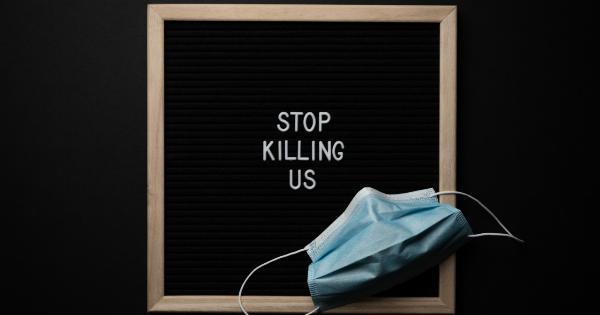There is no denying that we are living in an age of crisis. Climate change, political upheaval, economic instability, and social inequality are just a few of the challenges facing our generation.
But while we have become adept at identifying and discussing these issues, it often feels like we are struggling to make progress in addressing them. Some have even argued that our focus on individualism and self-promotion has made us uniquely ill-equipped to tackle the crises of our time. So how can we shift our priorities and become a more effective Crisis Generation?.
The Rise of Narcissism
One of the defining characteristics of our generation is our obsession with personal branding and self-promotion.
Social media platforms like Instagram and Facebook have given us unprecedented control over our public personas, and we have become experts at curating our online identities to present ourselves in the best possible light. While this emphasis on self-expression and creativity can be empowering, there is also a darker side to it.
Psychologists have identified a marked rise in narcissism among young people in recent years, likely fueled by the constant validation and attention we receive on social media.
This obsession with the self has spilled over into other areas of our lives as well. We are encouraged to pursue our passions and find our individualized paths, even if it means ignoring the needs of others or the larger community.
While this kind of autonomy can be liberating, it can also breed an insidious form of selfishness that makes it difficult for us to work together or create meaningful change.
A Call for Empathy
So how do we combat the growing trend toward narcissism in our generation? One powerful antidote is empathy – the ability to understand and share the feelings of others.
Empathy is not just a feel-good concept – it is a crucial tool for building relationships and nurturing the kind of collective action needed to solve big challenges. By prioritizing empathy over individualism, we can work together in a more effective and compassionate way to address the crises we face.
This shift towards empathy requires us to re-frame our thinking about what it means to be successful. Instead of prioritizing individual achievement, we can look for ways to support and uplift one another.
This might mean listening actively to the needs of our communities, prioritizing collaboration over competition, or giving voice and recognition to those who are often overlooked or marginalized.
Living with Purpose
Another way to move beyond the narcissism of our generation is to focus on living with purpose. This means finding a sense of meaning and direction beyond our own individual accomplishments.
Purpose-driven individuals are motivated by a desire to make a positive impact on the world, and are often drawn to careers or lifestyle choices that align with their values.
Living with purpose can help us transcend our own egos and look outward towards the needs of others. It enables us to see our lives as part of a larger ecosystem, where our actions have an impact on those around us.
While finding one’s purpose can be a challenging and ongoing process, it can be a powerful way to stay motivated when working on difficult or long-term problems.
The Power of Community
Finally, if the crises of our generation teach us anything, it is that we cannot go it alone.
Effective solutions to complex problems require the power of community – the ability to harness our collective resources, skills, and knowledge to make real change. By building strong and diverse networks with those around us, we can create a support system for each other and a foundation for making meaningful progress.
This kind of community-building requires empathy, purpose, and a willingness to work together. It means putting aside our individual desires and egos in favor of the greater good.
It means recognizing that we are all in this together, and that our challenges are too great to be solved by any one person or group.
Conclusion
Being part of the Crisis Generation can be daunting, but it can also be an opportunity for growth and positive change.
By shifting our focus away from individualism and narcissism and towards empathy, purpose, and community, we can become better equipped to face the challenges that lie ahead. It won’t be easy, but by working together and staying committed to our values, we can make real progress towards a better future.






























